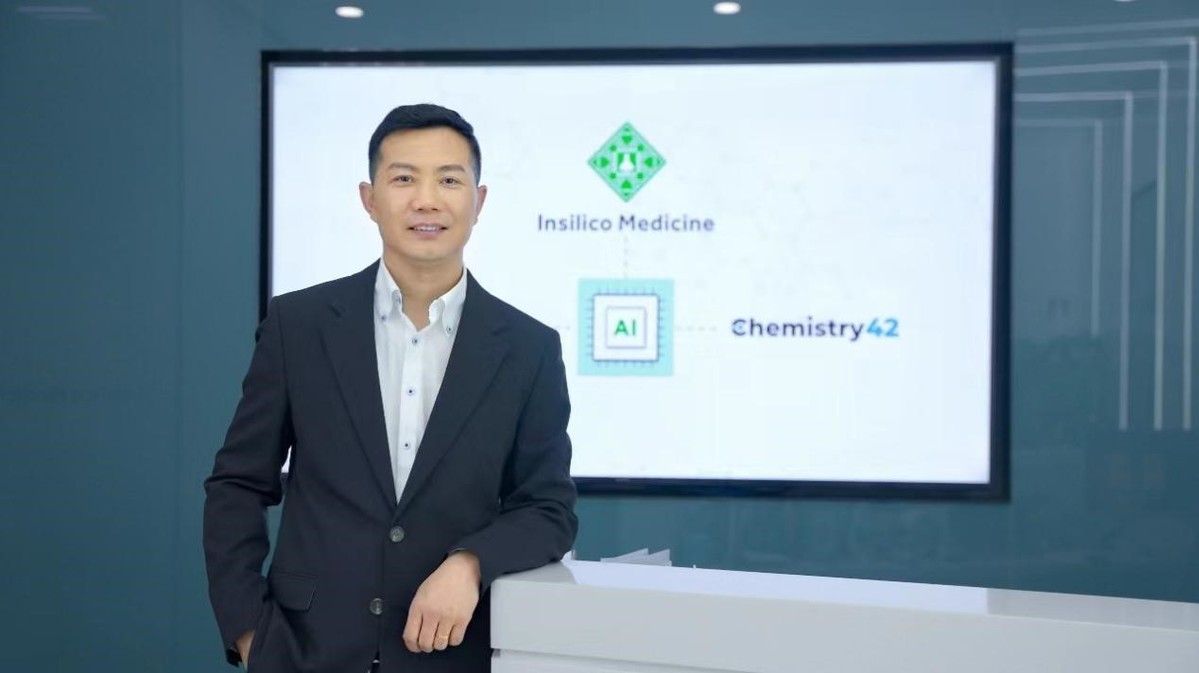AI drug breakthrough possible for China
By Liu Zhihua | chinadaily.com.cn | Updated: 2024-03-18 16:30

China is capable of a breakthrough in artificial intelligence-backed drug discovery and able to catch up with the top levels in the world, a senior business executive said.
Ren Feng, co-CEO of Insilico Medicine, a leading end-to-end AI-driven drug discovery company with key research and development team based in Shanghai, said in an interview with China Daily that Chinese AI pharmaceutical companies have currently lagged behind global major advancements for around one to two years, but there are still opportunities for them to catch up and excel in the future, thanks to their large number and huge potential to achieving fast progress through trials and errors.
"Currently, no AI-based drug development company's algorithm is universally recognized as the best, and no company claims to be leading this trend in the world. Under such circumstances, we need to explore more possibilities," Ren said.
"Since 2018, more than 100 AI pharmaceutical companies have been established in China, each with unique algorithms and focusing on different disease problems. With such a large number, eventually, a few companies are likely to emerge as leaders."
The development of antibody-drug conjugate (ADC) drugs in China is a similar example. Chinese ADC drug developers surpasses that of overseas counterparts, progressing at a faster pace, because they have a large number with a variety of molecules in development, which promises success in clinical applications of at least some ADC drugs, he said. ADC is a new emerging class of highly potent pharmaceutical drugs, usually for treating cancer.
Nature Biotechnology has recently published an article that offers first-hand information about how Insilico Medicine has used artificial intelligence to discover and develop its leading drug candidate, an anti-fibrotic small molecule inhibitor generated by its AI-powered drug discovery platform for idiopathic pulmonary fibrosis. IPF is a chronic, progressive lung disease with unknown causes.
The drug has already started phase-2 trials simultaneously in China and the United States.
The company has also been using AI to design and develop cancer treatments among other diseases, such as immunity and neuro diseases.
























